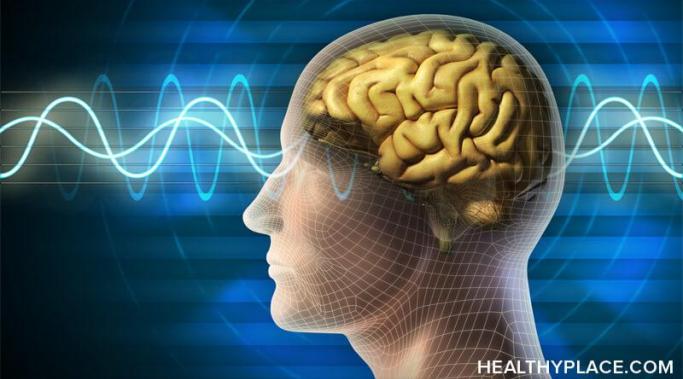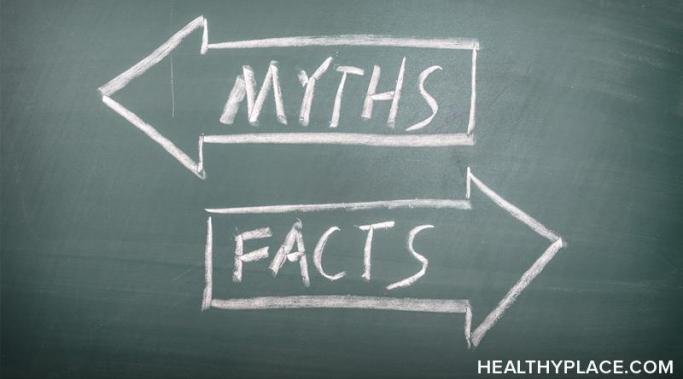I didn't get a say in my birth. My mother and father took the executive decision to procreate without my input, and I landed on the scene in the April of 1985 before I could register any objections. Upon my arrival, the doctors deduced a few things: I was a boy. I was healthy. And, given the amount of wailing and thrashing, I appeared mildly inconvenienced by this whole birth scenario. For nearly 32 years after that, the doctors didn't miss much--except to diagnose me with attention-deficit/hyperactivity disorder (ADHD).
ADHD Stigma
I'm a person on the Internet, which means large corporations like Google and Facebook have likely collected enough data on me to recreate me as a Metaverse AI. The benefit of this is that my social media feeds are finely tuned to align with my interests, and Instagram recommends me products that I can't afford but definitely want. That said, I sometimes worry that the algorithms know me too well, especially when TikTok started showing me video after video of people discussing their attention-deficit/hyperactivity disorder (ADHD).
Numerous studies, articles, and opinionated online users have claimed that the United States overdiagnoses attention-deficit/hyperactivity disorder (ADHD), leading to an over-reliance on stimulant ADHD medications like amphetamine and dextroamphetamine (Adderall) and methylphenidate hydrochloride (Ritalin) As someone diagnosed with ADHD as an adult, I often think about how different my work ethic might have been if I'd been diagnosed and prescribed ADHD medication at, say, 15 or even 18 instead of 24. I can say without a doubt that my medications help me stay productive and focused, and I wish I'd had that same capability back when I was a student.
As Black History Month comes to a close, I thought, what better time than now to shed some light on black mental health conditions--an issue I find all too common in the black community. Now I can't speak for all black people in the world, but I can speak from my own experience and the experiences others have openly shared with me regarding black mental health.
Is attention-deficit/hyperactivity disorder (ADHD) a gift or a disability? There is much debate about this topic. People feel very strongly about this ADHD issue, perhaps because the question is tied to our identity. In my opinion, there is no easy answer, and it very much depends on the circumstances.
Medication for attention-deficit/hyperactivity disorder (ADHD) is not as easy to obtain as people seem to think. Doctors consider stimulants to be some of the most effective ways to treat ADHD. However, in the United States, these stimulants are controlled substances that are regulated by federal law, particularly the Controlled Substances Act (1970). Recently, I bumped up against some of these regulations and spent the day traveling around in search of the right medication.
I think it was Jessica McCabe of "How to ADHD" who referred to herself, someone with attention-deficit/hyperactivity disorder (ADHD), as an ADHD late bloomer. I have found numerous forums where ADHDers wonder whether (or assert that) they are late bloomers. There are several reasons why people with ADHD might be considered late bloomers and there are reasons why being an ADHD late bloomer is not such a terrible thing.
Attention-deficit/hyperactivity disorder (ADHD) myths and misconceptions are impacted by our culture. Culture does not create ADHD, but it does affect its definition, treatment, and perception. Studies show that ADHD is a fairly universal phenomenon, but varying cultural practices mean ADHD is more visible in some countries than in others. Diagnosis and treatment of ADHD also differ within each country due to medical access, cultural beliefs, and biases. As someone raised (mostly) in the United States by American parents, I would like to describe some of the ways in which American ideals can shape views, myths, and misconceptions about ADHD.
Renaming attention-deficit/hyperactivity disorder (ADHD) is on my mind because, in honor of ADHD Awareness Month, I binged on lectures by ADHD-expert Dr. Russell Barkley. He points out that “attention-deficit/hyperactivity disorder” is a poor term for the condition, and he is not alone in thinking that renaming ADHD is a good idea. Fellow ADHD-specialist Dr. Edward Hallowell claims that “ADHD is a terrible term,” and many with this condition agree, myself included. I started to wonder about the history of the term, if there were alternative names for the disorder, and if renaming ADHD could reduce ADHD stigma.
To be fair, the Stanford marshmallow study is itself not stupid. It is the way that it is reported that often leaves me frustrated. In the 1960s and ’70s, Stanford psychologists conducted a series of studies in which researchers placed a marshmallow (or another treat) in front of a child. They told him that he would receive a second treat if he could wait for 15 minutes while the researchers left the room. Follow-up "marshmallow" studies revealed that the children who could wait longer tended to be more “successful” than those who did not. Unfortunately, this is the kind of narrative people with attention-deficit/hyperactivity disorder (ADHD) know too well, and it is the kind of test they often "fail." ADHD and self-control is a big deal.









